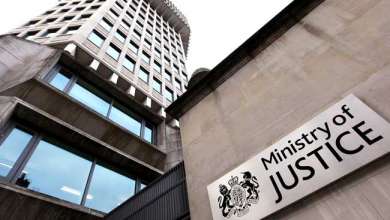High Court Slams IPCC for Failure to Follow Due Process

Shayab Miah V IPCC & Commissioner of Police for the Metropolis
“The Court of Appeal has delivered a well-deserved blow to the IPCC for failing to follow due process. As the IPCC prepares to morph under a new name and structure, the Court of Appeal has found that the IPCC unlawfully failed to uphold a police complaint appeal and direct the Metropolitan Police to fully investigate a police complaint of discrimination in stop at Heathrow under anti-terror legislation.
For the public to have any confidence in the police complaints system, the IPCC must ensure proper procedures are followed. It’s the IPCC’s job to bring the police to account when they do not properly investigate police complaints. Where there are widespread fears that people are being stopped at our borders solely on the basis of their ethnicity or religion, the IPCC must do better.”
Factual summary:
The Court of Appeal found that the IPCC unlawfully failed to uphold a police complaint appeal and direct the Metropolitan Police to fully investigate a police complaint of discrimination when the complainant was stopped at Heathrow under Schedule 7 of the Terrorism Act (a provision that enables police to stop and detain people for up to 9 hours without having any grounds to believe them involved in terrorism).
The complainant lodged a police complaint that the stop was a result of discrimination against him on the ground of his race and religion. His complaint was referred to the Metropolitan Police Service. Inspector Bhatowa was appointed to investigate the complaint. His investigation report contained hardly any information, merely asserting that correct procedures had been followed. The complainant appealed to the IPCC on the basis that he had not been provided with adequate information about the findings of the investigation.
The IPCC accepted the defective report and rejected the complaint appeal. The Court of Appeal said that the IPCC should have upheld the appeal and directed the police to produce a full investigation report. It was not appropriate for the IPCC to brush an appeal aside if it can see that relevant procedures have not been followed.
The IPCC will now have to re-consider the police complaint appeal.
Kate Maynard of Hickman and Rose solicitors / http://bit.ly/2An6UaA
Background information:
The Equality and Human Rights Commission Research Report No 72 (“The Impact of Counter-terrorism measures on Muslim Communities”), published in 2011, stated that the exercise of Schedule 7 powers were “having some of the most significant negative impacts across Muslim communities…”
The Government’s Independent Reviewer of Terrorism Legislation stated in his report The Terrorism Acts in 2012 that he was in ‘no doubt’ that the disproportionate likelihood of being stopped ‘has contributed to ill-feeling in these communities, and to a sense that their members are being singled out for police attention at the border.’ See paragraph 10.14 of ‘The Terrorism Acts in 2012’
*********************************
. Extract from the judgment
In so far as Ground 2 involves a challenge to whether the IPCC applied the harm test under those provisions correctly, I consider that the judge was entitled to find on the evidence before him – particularly the witness statement of Ms Goddard, even though she did not refer distinctly to the relevant provisions in relation to the harm test – that she did have it properly in mind when considering how to proceed. This provided the foundation for a further submission made by Mr Johnson, namely that it was lawful for the IPCC to dismiss the appellant’s appeal because it had investigated the background and satisfied itself that the only information which could safely be provided to the appellant, in accordance with the harm test, was that which was in fact provided to him in the form of the investigation report. In Mr Johnson’s submission, it would have been a sterile exercise for the IPCC to uphold the appellant’s appeal in circumstances where it had satisfied itself that he could not safely be provided with any more information relating to his treatment at Heathrow.
I do not accept these submissions, for a number of reasons. In the first place, it was or should have been clear to the IPCC that the appropriate authority in this case had been provided with a defective investigation report which did not provide that authority with the full information it required in order to exercise its functions under para. 24 of Schedule 3. Nor did it appear that the appropriate authority had ever itself considered the application of the harm test. In a context like this, where it is said that a complainant cannot be provided with full information about the findings made in relation to his complaint, it makes it doubly important that a complainant and the public at large can be assured that proper procedures have been followed and that the case has been considered correctly, even if only behind a screen which is required to be in place to safeguard the public interest.
In such a case, the IPCC’s function of acting to secure that public confidence is established and maintained in the existence of suitable arrangements for the handling of complaints and in relation to the due operation of those arrangements (see section 10(1)(d) of the 2002 Act) requires it to check that the arrangements in place are in fact suitable and that they have been followed correctly. It is not appropriate for the IPCC to brush an appeal aside if it can see that the relevant procedures have not been followed, that appropriate information has not been passed to the relevant decision-maker (the appropriate authority) and that the appropriate authority has not properly and with full information applied its mind to the matters which ought properly to be for its decision. Rather, the IPCC should make a decision on the appeal that ensures that the relevant procedures will in fact be followed.
Secondly, the IPCC had itself already provided the appellant with information to suggest that there was a tag on his passport. It is therefore difficult to see how it could think that proper application of the harm test meant that such information could not be provided to the appellant by the appropriate authority.
Thirdly, in the absence of any closed procedure in court, the court below was not (and we are not) in a position to look into the background facts. This has the result that it is not open to the IPCC to argue that the claim for judicial review should in any event have been dismissed pursuant to section 31(2A) of the Senior Courts Act 1981 on the grounds that it is highly likely that, if the IPCC had not erred in law, the outcome for the appellant would not have been substantially different.
It may be that, once the proper procedures are followed by the investigating officer and by the appropriate authority in this case, the net result will be that the appellant is not provided with more information about the circumstances of his complaint than he has already received and that the appropriate authority again decides that there is no evidence that a criminal offence or a disciplinary offence has been committed. But it is important that the investigating officer and the appropriate authority should carry out their tasks properly before such a conclusion is arrived at. It is also important, if public confidence in the operation of the procedures put in place by the MPS pursuant to Schedule 3 is to be maintained, that the IPCC should check that they have in fact been properly followed, even if the appellant cannot be told more.
In my judgment, therefore, the appeal should be allowed on both Ground 1 and Ground 2, and the case remitted to the IPCC for further consideration in accordance with the guidance given by this court. If Jackson and Flaux LJJ agree, then in my view it is neither necessary nor appropriate to consider Ground 3.
Lord Justice Flaux:
You can read the full judgment here: http://bit.ly/2jVsZWy





